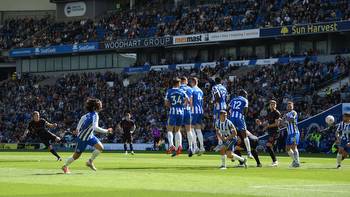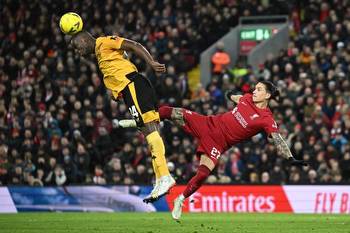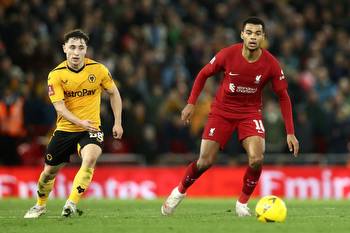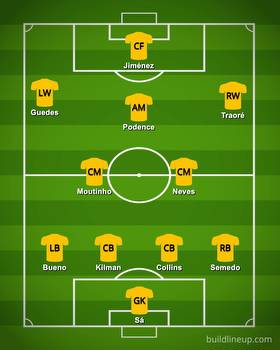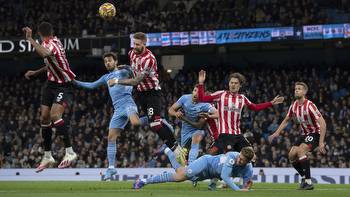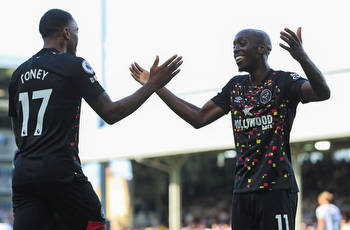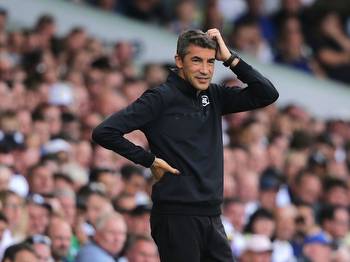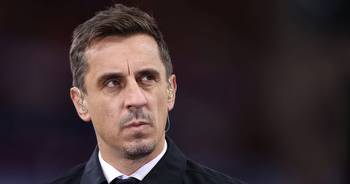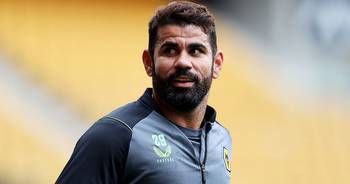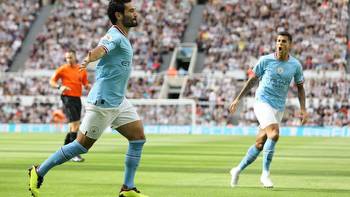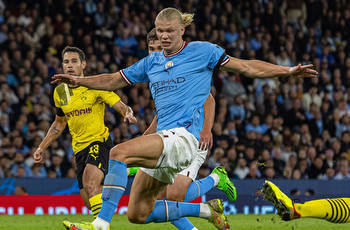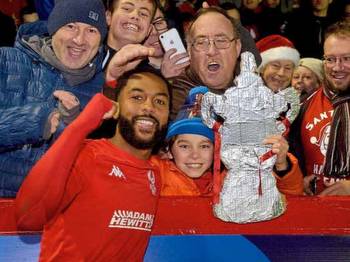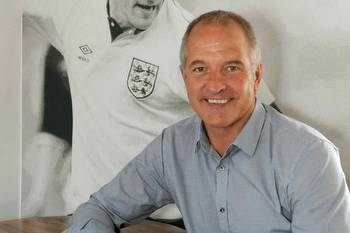Wolves’ Sasa Kalajdzic: ‘I’ve come back from one serious injury, I’m doing it again’
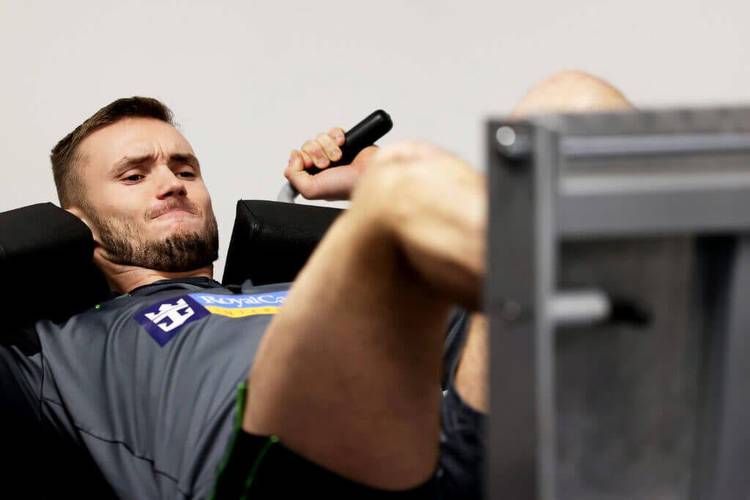
Sasa Kalajdzic did not need to hear the words to have his worst fears confirmed.
He just needed to gauge the tone.
“When the doctor said, ‘Sasa, come with me’, I knew straight away it was something serious,” the Wolverhampton Wanderers and Austria striker says as he reflects on the day his Premier League debut turned into a nightmare.
“If not he would have just said, ‘Sasa, good news, everything is fine’, but he said, ‘Please come into the room’, with a serious tone.”
During a wide-ranging chat with The Athletic, Kalajdzic covers his childhood, his unusual route to top-flight and international football, his style of play, settling into the West Midlands and his hopes for his Wolves career.
But we begin with the elephant in the room — the day Kalajdzic was supposed to begin an exciting new chapter but ended up ruled out of his first Wolves season after just 45 minutes due to the second anterior cruciate ligament tear of his career.
“It felt like a little shock,” he says of the moment, near the end of the first half against Southampton at Molineux in September, when the 6ft 7in striker twisted his knee awkwardly. “I felt something but it was not like last time. I played for the next six or seven minutes until half-time and I felt like something wasn’t quite right.
“My knee felt a little bit weaker in some situations but not all so I thought maybe it was an injury but maybe something not that bad and I was quite positive when I did the MRI scan.
“I waited in the dressing room with my fiancee after the team won the game and the doctor came in.”
The MRI scan confirmed Kalajdzic had suffered another cruel twist of fate. Shortly after signing for Stuttgart from Admira Wacker in the summer of 2019, Kalajdzic suffered the same injury in one of his first training sessions and missed most of the season.
So when he received the crushing blow on what should have been one of the happiest days of his professional life, he knew what the next few months held in store.
“It’s easier because you know what is expected but it’s harder because you know it’s a very long process,” he says. “But I’m feeling really good and progressing very well. I hope I will continue like this.
“Physically and mentally, it’s a challenge, but I’m in really good hands and that’s keeping me positive, helping me get through it.”
Kalajdzic will play no further part this season and has not been included in Wolves’ 25-man squad for the second half of the campaign, but if his rehabilitation remains on course, he should be fit to join his team-mates for pre-season training. He will hope to return to a club still in the Premier League, where he can continue a career that has hit great heights from modest beginnings in Vienna.
Kalajdzic’s route to the top has not been conventional. His school had links with Austria Vienna, the 24-time league champions, with several of his school friends invited to join the club’s academy.
But the young Kalajdzic was overlooked.
“I was good at school but I was never good enough for the academy because I was never physical enough at that time,” he says. “I was gifted and had an eye for my team-mates as a No 6 but I never had the strength or the pace.”
Instead, Kalajdzic’s talents were spotted by the youth teams at First Vienna, Austria’s oldest club, who compete in the country’s second tier. And as a teenager, he was soon testing himself against adult players in the nation’s third and fourth divisions for Donau and Donaufeld Vienna.
It was a long way from the plush academy upbringing that some of his peers were enjoying.
“For every kid, the hardest thing is to adapt to adult football,” he says. “There are kids who are very talented in academies but don’t make it against adults. That was the big thing I got at 16, 17 and 18 — I didn’t always play but I still trained with them.
“Adults don’t play like children. They play cleverer. They know some kids don’t like physicality so they will give you a few pushes or step on your foot and they know how to beat you. Some kids don’t adapt quickly enough. Some of the kids from my school made it but none of them made it as far as me, and some of them were tipped for really big futures.”
When his studies were complete, Kalajdzic had a decision to make. Did he continue studying and qualify as an engineer or try his hand at professional football?
“I told my parents I was happiest at training, playing football. If I wasn’t playing football professionally I would be playing after work or after studies with my friends. I wanted to improve and adapt and compete against the best.”
Kalajdzic did just that, signing with Austrian top-flight side Admira to play in their reserve side as a midfielder, before a first-team crisis gave him an unexpected break to kickstart his career.
With the club sliding towards relegation and struggling for goals, the first-team manager looked at his reserve-team midfielder and decided to use one of his outstanding assets. By now, the teenager who struggled physically at school was a 6ft 7in (200cm) 20-year-old.
“I was always a little bit above average height but I got a huge growth spurt at 17 and it was a challenge to coordinate everything,” he says.
“I was always very tall but not very heavy so I was skinny and I had to add some kilos and adapt my game.
“Everything looked very funny on me because I had long legs and long arms. I still do but I can control them a lot better than I could a few years ago.”
Admira tried Kalajdzic as a striker as a final throw of the dice in their search for goals. His career changed course overnight.
“In six games, I scored eight goals,” he says. “That was the first time people got to know me and after that season, I got a professional contract.”
By 2019, fully remodelled as a centre-forward, Kalajdzic had the chance to join Stuttgart, who had just been relegated from Germany’s top division. Keen to help them reclaim their top-level status, his hopes were shattered by an injury in training.
By the time he returned with six games of the season remaining, Stuttgart were on course for promotion.
But he took his chance in the Bundesliga with 22 goals in 51 games (at a rate of 0.55 goals per 90 minutes) over the next two seasons to attract attention, with Wolves paying £15.5million ($19m) to bring him to Molineux.
His time in England has not gone to plan, but off the field at least, things are beginning to settle down.
“The beginning was quite difficult, finding a house,” he says. “I could not just get into my car and drive somewhere to look. First I had pain, second I had no car and third I was not allowed to drive anyway!
“My fiancee, Lorena, has been here all the time supporting and helping me. The first two months were difficult but now we’ve done it and settled.”
Kalajdzic’s sights are now set on the summer and the chance to belatedly get his Wolves career underway.
And having overcome an identical injury to return his career to an upward trajectory, he is intent the same will happen again.
“There are worse things in life than being injured,” he says. “I came here because I wanted to play in the Premier League because it’s the best opportunity to improve as a player.
“There are people who have nothing and can’t afford to buy their family food or don’t have a roof over their head. There is much worse in life than my situation.
“Two weeks after signing for Stuttgart, I had my first knee injury, so I am living deja vu. I can’t change it now.
“And if the comeback this time can be like last time, then I am pretty excited and the fans can be excited, too.”








